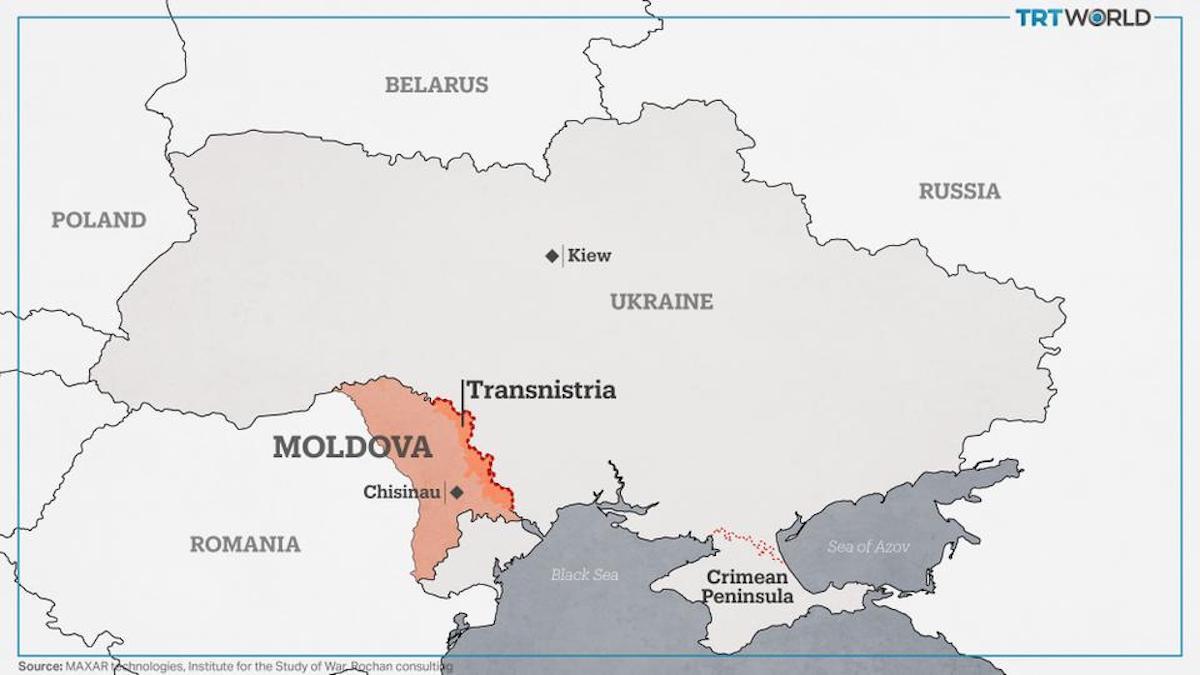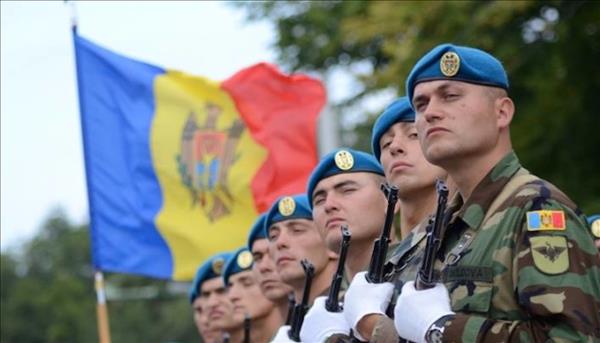(MENAFN- Asia Times) One of the consequences of Russia's war in Ukraine is the fact that the Kremlin has lost a lot of its influence in former Soviet countries. This creates opportunities to limit Moscow's ability to leverage its once-dominant role to further its war aims.
However, it also means that Russia is likely to raise the stakes and try to escalate tensions and confrontation across the region.
For the past several weeks, Moldova has been at the center of such efforts by the Kremlin. And this just be an indication of how Russia envisages the next stage of its confrontation with the west.
Even before the start of the war in Ukraine, there were signs of the countries of Central Asia beginning to assert their individual and collective interests more strongly, a trend that has accelerated since february 2022 .
Notably, as China's role in the region has grown, partly as a result of the void created by Russia, the US has rekindled its relationships with key partners in Central Asia, especially Kazakhstan and Uzbekistan, in yet another sign of Russia's diminishing stature.
In the south Caucasus, turkey has challenged Russia's erstwhile dominance of the region. Ankara has openly backed Azerbaijan in the conflict with Armenia (a Russian client) over Nagorno-Karabakh.
Turkish control over key pipeline infrastructure, such as the trans-Anatolian gas pipeline which connects Azerbaijan's Shah Deniz region with the European trans-Adriatic Pipeline at the Greek-Turkish border, provides a critical alternative to oil and gas – either from Russia or transiting through Russia.
At the same time, the european union has played a more proactive role as a mediator in the conflict between Armenia and Azerbaijan. This is much to the detriment of Moscow, which used to be the key power broker in this conflict.
The limits of Russian influence became obvious in georgia recently. The government there, after three days of increasingly violent protests, had to withdraw a bill in parliament that would have severely restricted civil and political liberties in ways eerily reminiscent of russia's foreign agents law .
Further afield, Russia also seems to have overplayed its hand in the Balkans. The Serbian government – one of Moscow's longstanding allies in the region – showed no hesitation in February when it cracked down on pro-Kremlin protesters that tried to storm government buildings in the capital Belgrade.
Down but not out
Because of the costs of the war in Ukraine, Russia may be limited in the extent to which it can stem – or even reverse – this loss of influence. But it would be wrong, and dangerous, to underestimate Russian efforts to do so.
This has been most obvious for some time now in moldova . Here, Russia has been implicated in prolonged destabilization efforts aimed at undermining the pro-western government of Maia Sandu and thwarting the country's efforts to join the EU.

Perilous position: Moldova is vulnerable to destabilization. Map: TRTWorld / Screengrab / Twitter
Russia's efforts to create instability in Moldova and in the breakaway region of Transnistria rely primarily on disinformation , by spreading rumors such as the idea that Moldova and Ukraine have been plotting to invade Transnistria.
The Kremlin has also been able to exploit an economic crisis in Moldova – triggered by sky-rocketing inflation caused by the war in Ukraine – and cast doubt on the competence of the government and the legitimacy of its pro-European course.
Moscow has also played on uncertainty, alleging an imminent Ukrainian attack on Transnistria or the use of a“dirty bomb” by Ukraine in the breakaway territory. Yet, at the same time, there is also a danger that whatever military assets Russia controls in Transnistria could be used to create a second front in the war against Ukraine.
While this remains unlikely, it has forced Ukraine to concentrate some of its forces at the border with Transnistria. If nothing else, there is a danger of inadvertent escalation that could quickly engulf Transnistria and Moldova and draw in Ukraine and neighbouring Romania – a NATO member and a key ally of Sandu's government, with deep historical ties to Moldova.
A playbook for 'horizontal' escalation?
Russia has invested a lot in its destabilization efforts in Moldova. While it may seem that there has not been a lot of return on this investment, this would be the wrong conclusion to draw. Moscow has found it relatively easy to capitalize on the frustrations felt by many ordinary Moldovans by peddling a narrative that diverts blame and exacerbates fear and uncertainty.
Russia has carefully leveraged relationships with established and emerging willing allies in the Moldovan political establishment, such as irina vlah the recently elected leader of Moldova's autonomous gagauzian region and the pro-Moscow opposition shor party . This means the Kremlin maintains disproportionate malign influence in a country with weak institutions.
These Russian levers of influence are prominent in Moldova, but they also exist elsewhere. Recent setbacks, such as in georgia do not mean that Russia will shy away from using this influence again in the future.
On the contrary, even the defeat that the pro-Russian Georgian Dream coalition of political parties suffered over the withdrawn“foreign agents law” suits a foreign policy agenda that above all invests in destabilization.

Recent protests in Tbilisi forced the government to withdraw Russia-inspired legislation. Image: Screengrab / BBC
An unstable post-Soviet neighborhood may not be Moscow's first choice, but it is still preferable from the Kremlin's perspective to one where Russia is surrounded by strong, well-governed countries with a pro-western orientation.
Such an outlook does not bode well for countries that are heavily dependent on Russia economically or militarily, including Armenia, Kyrgyzstan and Tajikistan. Nor does it bode well for countries with significant ethnic Russian communities, such as Kazakhstan – or even Nato members Latvia and Estonia.
This makes the current events in Moldova even more significant. If this is the trial run for a new version of the old Russian playbook of neighborhood destabilization, it is all the more important to stop the Kremlin in its tracks in Moldova.
stefan wolff is Professor of International Security, university of birmingham
This article is republished from the conversation under a Creative Commons license. Read the original article .






















Comments
No comment